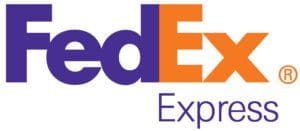 A few years ago, I took a family vacation to Copenhagen, where the autonomous train system brought joy to my whole family. One of the things we had planned to see while we were there, but never got around to, was the six forgotten giants, by recycle art activist artist Thomas Dambo. Fast forward three years and my wife and I saw that he had built five giants in the Maine Botanical Gardens. So of course, we built a trip around it. And to say it did not disappoint would be an understatement. The installation is called Guardian of the Seeds, where hidden throughout native, natural wooded areas, five giant trolls wait to be unearthed. Each troll represents a different part of the tree, and there is a hidden treasure to find at the end. Needless to say, my family loved it, and the creations were spectacular. And now on to this week’s logistics news.
A few years ago, I took a family vacation to Copenhagen, where the autonomous train system brought joy to my whole family. One of the things we had planned to see while we were there, but never got around to, was the six forgotten giants, by recycle art activist artist Thomas Dambo. Fast forward three years and my wife and I saw that he had built five giants in the Maine Botanical Gardens. So of course, we built a trip around it. And to say it did not disappoint would be an understatement. The installation is called Guardian of the Seeds, where hidden throughout native, natural wooded areas, five giant trolls wait to be unearthed. Each troll represents a different part of the tree, and there is a hidden treasure to find at the end. Needless to say, my family loved it, and the creations were spectacular. And now on to this week’s logistics news.
- US bans imports of solar panels linked to forced labor in China
- FedEx to add 16 automated facilities ahead of peak season
- Winnebago grapples with a ‘year’s worth of demand’ in backlog
- Office Depot / Office Max offers free 30-minute in-store fulfillment
- Amazon to open robotic warehouse in Alberta
- Zebra Technologies to acquire Fetch Robotics
- SANDAG/Caltrans open new Mexican border crossing
- May intermodal volumes continue steady rise
 The Biden administration banned the import of solar panels and other goods made with materials produced by a Chinese company that it accused of using forced laborers from China’s Xinjiang region. US Customs and Border Protection issued a withhold release order barring silicon-based products from the company, Hoshine Silicon, which operates from plants in Xinjiang that have been connected to coercive state labor programs targeting Uyghurs and other minorities. The US-based Solar Energy Industries Association (SEIA) said the US imported more than $8 billion in solar panels in 2020. By banning only Hoshine imports, CBP stopped short of targeting Xinjiang producers of another key solar ingredient, polysilicon. Those producers have also been connected to coercive labor programs targeting Uyghurs. This move is likely to complicate the US push toward clean energy.
The Biden administration banned the import of solar panels and other goods made with materials produced by a Chinese company that it accused of using forced laborers from China’s Xinjiang region. US Customs and Border Protection issued a withhold release order barring silicon-based products from the company, Hoshine Silicon, which operates from plants in Xinjiang that have been connected to coercive state labor programs targeting Uyghurs and other minorities. The US-based Solar Energy Industries Association (SEIA) said the US imported more than $8 billion in solar panels in 2020. By banning only Hoshine imports, CBP stopped short of targeting Xinjiang producers of another key solar ingredient, polysilicon. Those producers have also been connected to coercive labor programs targeting Uyghurs. This move is likely to complicate the US push toward clean energy.
 The holiday season, while months away, is always looming. And as e-commerce continues to surge, the 2021 holiday season promises to be even busier for shippers and carriers. For the 2020 holiday season, FedEx expanded its e-commerce capabilities in an attempt to keep up with demand, and the company is showing no signs of slowing down. FedEx is currently working to “substantially” increase its capacity ahead of the holiday season by building out its infrastructure. The infrastructure build-out will include 16 new automated facilities expected to be ready in time for peak season. The technology employed in these facilities includes advanced automated material handling and sortation systems as well as six-sided high-speed scanning systems.
The holiday season, while months away, is always looming. And as e-commerce continues to surge, the 2021 holiday season promises to be even busier for shippers and carriers. For the 2020 holiday season, FedEx expanded its e-commerce capabilities in an attempt to keep up with demand, and the company is showing no signs of slowing down. FedEx is currently working to “substantially” increase its capacity ahead of the holiday season by building out its infrastructure. The infrastructure build-out will include 16 new automated facilities expected to be ready in time for peak season. The technology employed in these facilities includes advanced automated material handling and sortation systems as well as six-sided high-speed scanning systems.
 One thing the Covid-19 pandemic did over the last year was to increase the number of vacations, or should I say trips, that American families took that involved driving instead of flying. For a large number of people, this meant renting an RV to travel in style and comfort. And while rentals have been up, it’s been harder to buy an RV due to shrinking production. Winnebago Industries, the motorhome manufacturer, is working to increase production after its backlog reached record levels amid high consumer demand. The company’s backlog in its towable segment reached $1.5 billion, a 17 percent uptick over the previous quarter, CFO Bryan Hughes said. Backlog in the motorhome segment reached another record of $2.2 billion, an increase of 323 percent year-over-year and an increase of 21 percent versus the previous quarter. Hughes did not specify what constraints the company is facing but highlighted the late-winter storm in Texas and the blockage of the Suez Canal as two issues that have hampered its access to “certain components.”
One thing the Covid-19 pandemic did over the last year was to increase the number of vacations, or should I say trips, that American families took that involved driving instead of flying. For a large number of people, this meant renting an RV to travel in style and comfort. And while rentals have been up, it’s been harder to buy an RV due to shrinking production. Winnebago Industries, the motorhome manufacturer, is working to increase production after its backlog reached record levels amid high consumer demand. The company’s backlog in its towable segment reached $1.5 billion, a 17 percent uptick over the previous quarter, CFO Bryan Hughes said. Backlog in the motorhome segment reached another record of $2.2 billion, an increase of 323 percent year-over-year and an increase of 21 percent versus the previous quarter. Hughes did not specify what constraints the company is facing but highlighted the late-winter storm in Texas and the blockage of the Suez Canal as two issues that have hampered its access to “certain components.”
The e-commerce surge has led to an increase in buy online, pick-up in store or curbside. Grocery stores have seen arguably the biggest growth in this method, but retailers everywhere are making this the new normal. Office Depot announced it is now offering free 30-minute in-store and curbside pickups at its 1,100 Office Depot and OfficeMax stores nationwide. Backed by its online and digital B2B distribution platform, customers can take advantage of the free service by placing a qualifying order online on Office Depot’s website or by using its mobile app. For in-store and curbside pickup orders not ready in 30 minutes, customers will receive $5 off their next qualifying purchase. This last part could certainly push competitors, and other retail verticals, to think about doing the same.
 As Amazon continues to expand its warehouse footprint, it also continues to automate more tasks. The company announced earlier this week that it will use robotics to put together small orders of books, electronics and toys at a new warehouse in Parkland County, Alta., west of Edmonton. The technology has been used at other Amazon warehouses since 2012, but the company said the 5,574 square-meter Parkland location will be its first robotics facility in Alberta. Despite the warehouse’s use of robots, Amazon said it will hire more than 1,000 full- and part-time staff to work at the facility, which is expected to open next year.
As Amazon continues to expand its warehouse footprint, it also continues to automate more tasks. The company announced earlier this week that it will use robotics to put together small orders of books, electronics and toys at a new warehouse in Parkland County, Alta., west of Edmonton. The technology has been used at other Amazon warehouses since 2012, but the company said the 5,574 square-meter Parkland location will be its first robotics facility in Alberta. Despite the warehouse’s use of robots, Amazon said it will hire more than 1,000 full- and part-time staff to work at the facility, which is expected to open next year.
Speaking of robotics, Zebra Technologies announced it intends to acquire Fetch Robotics, a pioneer in on-demand automation. Fetch’s Autonomous Mobile Robots (AMRs) are used for optimized picking in fulfillment centers and distribution centers, just-in-time material delivery in manufacturing facilities and automating manual material movement in any facility. According to Anders Gustafsson, Chief Executive Officer of Zebra Technologies:
“The acquisition of Fetch Robotics will accelerate our Enterprise Asset Intelligence vision and growth in intelligent industrial automation by embracing new modes of empowering workflows and helping our customers operate more efficiently in increasingly automated, data-powered environments. This move will also extend our ongoing commitment to optimize the supply chain from the point of production to the point of consumption. We are excited to welcome the Fetch team to the Zebra family.”
Cross-border commerce has been hampered significantly over the last year due to the Covid-19 pandemic. Additionally, for many crossings on the US-Mexico border, delays have been building. The California Lt. Gov. Eleni Kounalakis, California Secretary of Transportation David S. Kim and members of the San Diego Association of Governments (SANDAG) joined Mexican Federal Government officials June 28 to sign an agreement that will ensure a new port of entry and accompanying transportation infrastructure to improve cross border commerce, improve mobility, and reduce air pollution. The proposed border improvements are aimed at providing fast, predictable and secure border crossings by constructing a four-lane tolled road connecting directly to a state-of-the-art Customs & Border Protection Land Port of Entry and a California Highway Patrol Commercial Vehicle Enforcement Facility.
And finally, May intermodal volumes again saw annual across-the-board gains, according to data provided to LM by the Intermodal Association of North America (IANA). Total May shipments, at 1,616,620, headed up 22.4 percent annually. Domestic containers, at 663,282, increased 17.9 percent, with trailers, at 102,914, up 18.6 percent. All domestic equipment, at 766,196, rose 18 percent, and international, or ISO, containers, at 850,424, were up 26.6 percent. And on a year-to-date basis, for the first five months of 2021, total shipments, at 7,869,273, are up 16.1 percent. Domestic containers, at 3,297,487, are up 11.8 percent, with trailers, at 518,519, up 24.8 percent. All domestic equipment, at 3,816,006, is up 13.4 percent, and ISO containers, at 4,053,267, are up 18.7 percent.
That’s all for this week. Enjoy the long weekend and the song of the week, Dermot Kennedy’s Giants.

















